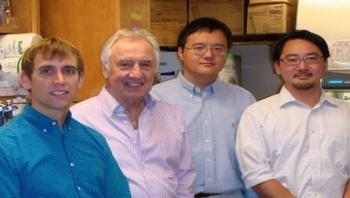
News
Advertisement


Advertisement




Advertisement
















Scientists at the Scripps Research Institute (TSRI) have determined the most detailed picture yet of a crucial part of the hepatitis C virus, which the virus uses to infect liver cells. The new data reveal unexpected structural features of this protein and should greatly speed efforts to make an effective hepatitis C vaccine. The findings, which appear in the November 29, 2013 issue of the journal Science, focus on a protein known as E2 envelope glycoprotein.







Advertisement
Advertisement
Trending on Infection Control Today
1
Bug of the Month: The Quiet Guest in the Dust
2
Continuous Photohydrolysis Disinfection Cuts MDROs, COVID-19, and Hospital Transfers in Long-Term Care, Study Finds
3
What Is Effective Preparedness for Emerging Respiratory Viruses? Shazia Irum, MSC, MBA, RN, CIC, CPHQ, FAPIC, answers
4
Influenza D and Canine Coronavirus: Why Underrecognized Animal Viruses May Be the Next Respiratory Threat
5